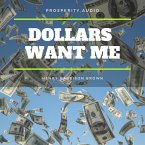Getting what you want is success, and success is an effect, coming from the application of cause. Success is essentially the same in all cases. The difference is in the things the successful people want, but not in the success. Success is essentially the same, whether it results in the attainment of health, wealth, development or position. Success is attainment, without regard to the things attained. And it is a law in nature that like causes always produce like effects. Therefore, since success is the same in all cases, the cause of success must be the same in all cases. Wallace D. Wattles popularized the New Thought principles
Hinweis: Dieser Artikel kann nur an eine deutsche Lieferadresse ausgeliefert werden.
Dieser Download kann aus rechtlichen Gründen nur mit Rechnungsadresse in A, D ausgeliefert werden.
Hinweis: Dieser Artikel kann nur an eine deutsche Lieferadresse ausgeliefert werden.








